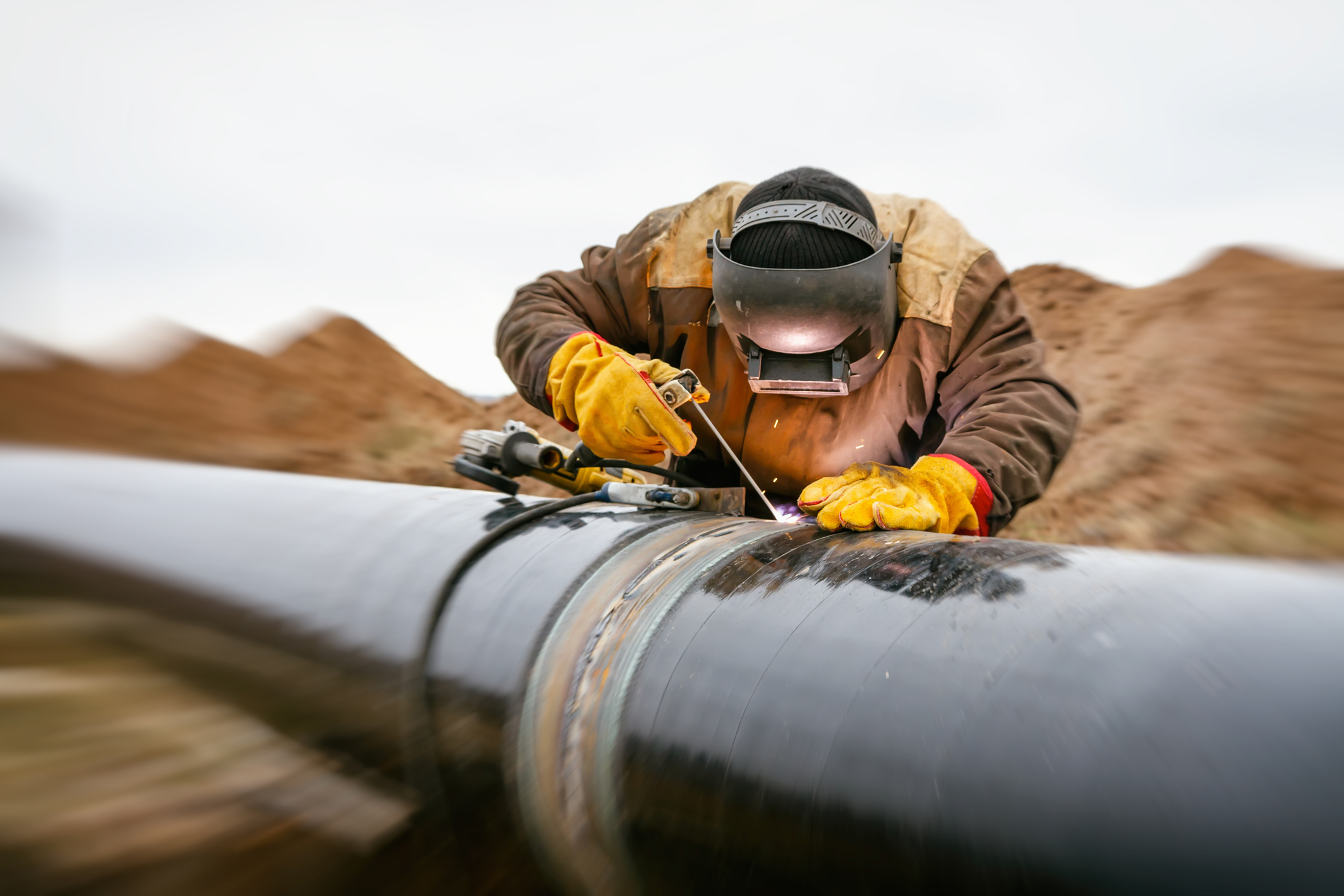The S&P 500 index (^GSPC -0.00%) is yielding a scant 1.2%. By comparison, the 6.3% yield on offer from Enbridge (ENB -0.33%) and the 6.4% from Enterprise Products Partners (EPD -0.62%) are huge! But there’s actually more to like about these two North American midstream giants than just lofty yields.
Here’s why you can comfortably buy and hold these ultra-high-yield stocks for a decade or longer.
Being stuck in the middle is good for Enterprise and Enbridge
Both Enterprise and Enbridge operate in what is known as the midstream segment of the broader energy sector. Effectively, they invest in large and expensive assets like pipelines, storage terminals, transportation hubs, and processing plants. These vital energy assets are then offered up to upstream (energy production) and downstream (chemicals and refining) players for their use.
Image source: Getty Images.
What’s important, and differentiates the midstream from the upstream and downstream, is that customers of Enbridge and Enterprise generally pay fees for the use of the assets. Commodity prices play a very small role in the revenues either of these midstream giants generate. Demand for their services is more important and, even during energy downturns, demand for oil and natural gas tends to remain high. These two fuels are vital to economic activity no matter the price being charged on the open market.
One counterargument here is that renewable power is set to replace carbon fuels over the long term. This could very well be true, but it isn’t a light switch. The transition will likely take at least a decade to complete. It is also worth noting that even dirtier coal and biomass are still important energy sources around the world despite the existence of better options (notably oil and natural gas).
It isn’t yet clear that clean energy will replace anything, particularly if demand for energy continues to increase. An “all of the above” strategy might end up being the winning ticket. That would mean demand for the vital energy services of Enterprise and Enbridge might remain robust for decades to come.
Enterprise and Enbridge: Strong and reliable
So there’s no particular reason to be worried about the basic business within which these two midstream players operate. But why these two? For starters, they have each proven to be highly reliable income stocks. Enterprise has increased its distribution for 26 consecutive years. Enbridge has increased its dividend (in Canadian dollars) for 30 years. It is pretty clear that each places a high level of importance on rewarding investors with a reliable and growing income stream.
Then there’s the financial foundation. Enterprise Products Partners has an investment grade rated balance sheet and so, too, does Enbridge. Enterprise’s distributable cash flow covers its distribution by a strong 1.7 times. Enbridge is projecting that its distributable cash flow payout ratio will remain smack dab in the middle of its 60% to 70% target range. Basically, there’s no particular reason to think that either of these midstream giants is at risk of a cut.
To be fair, the yields of both of these investments are likely to make up the lion’s share of returns over time. There are limited opportunities for large, growth-oriented midstream investments in North America. However, acquisitions and ongoing capital investment programs should lead both businesses to continue growing over time. Enbridge has an over $20 billion capital investment program in place that will last through 2029, and Enterprise has nearly $7 billion of growth projects currently under construction.
There are two big differences between Enbridge and Enterprise
If you are looking at these two highly attractive income stocks and trying to decide on just one to buy, there are some important distinctions to make between them. Enterprise is a master limited partnership (MLP), which involves a bit more complication when filing your taxes. Enbridge, meanwhile, has exposure to natural gas utilities and clean energy assets, so it has a more diversified asset portfolio. Neither of these issues is likely to make or break the attractiveness of these two ultra-high-yield investments, but individual investors might end up preferring one over the other. Regardless of which one you choose, however, you should be able to happily collect lofty dividend checks for years to come.
Reuben Gregg Brewer has positions in Enbridge. The Motley Fool has positions in and recommends Enbridge. The Motley Fool recommends Enterprise Products Partners. The Motley Fool has a disclosure policy.

